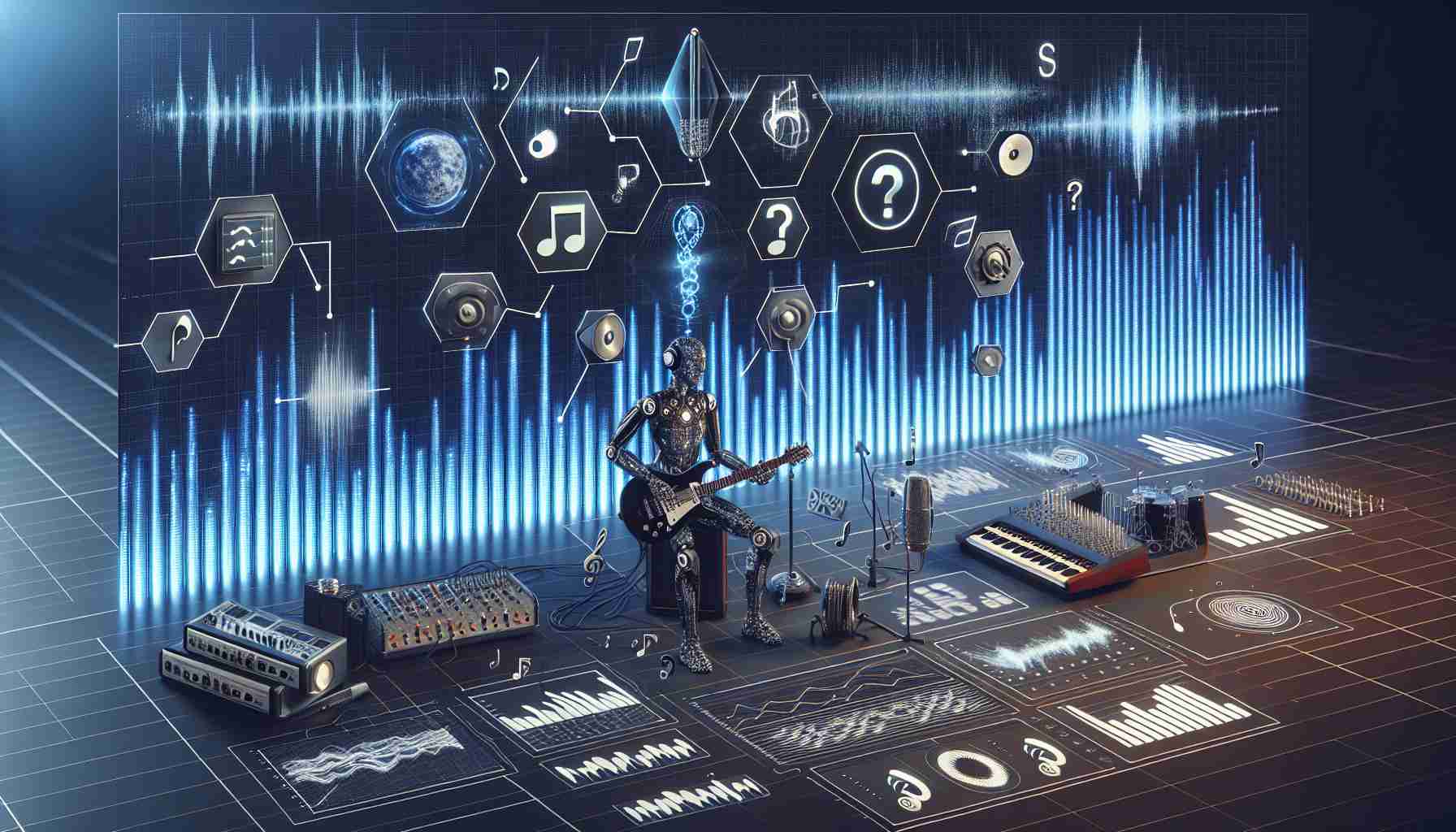More than 200 musicians have expressed their apprehensions towards the use of AI music-generation technology, fearing that it could potentially replace human artists and have significant implications on royalty payouts. In an open letter, prominent artists such as Billie Eilish and Katy Perry have called on AI developers and tech companies to reconsider the use of AI in music creation, asserting that it devalues the work of human artists. This debate raises important questions about the future of the music industry and the impact of AI technology.
One of the main concerns raised by musicians is that AI-powered platforms and developers may compromise creativity and undermine the music industry as a whole. These artists claim that some of the largest and most influential companies are utilizing their work without consent to train AI models, ultimately leading to the production of vast volumes of AI-generated music and visuals. This raises concerns about ownership rights and potentially diluting the royalty pools that artists receive.
The consequences of such a scenario, according to the open letter, would be catastrophic for working musicians who are already struggling to make ends meet. It implores AI developers, tech companies, platforms, and digital music services to take a pledge that they will abstain from utilizing AI music-generation technology.
This sentiment stresses the urgency to halt the assault on human creativity, emphasizing the need to protect artists’ voices, likenesses, and rights, while preserving the intricacies of the music ecosystem.
AI’s impact on the music industry is not a new concern. Creative sectors have expressed similar apprehensions over the past few years. In the case of music, the introduction of generative AI technology has given rise to AI-generated songs that bear striking resemblances to those by popular artists. This phenomenon prompted the streaming service Deezer to announce the development of AI-detection tools in response.
Furthermore, the state of Tennessee recently implemented legislation to safeguard music industry professionals from potential dangers associated with AI. The concerns surrounding AI’s influence have extended beyond music, with various creative sectors demanding that companies such as OpenAI, Meta, and Alphabet cease using their works to train AI models without consent, credit, or compensation.
It is clear that the implications of AI in creative industries are far-reaching and multifaceted. While AI technology undoubtedly offers opportunities for innovation and efficiency, it is essential to balance these advancements with ethical considerations and fair treatment of artists. As the debate around AI in music and other creative fields continues to evolve, it is crucial for industry leaders, stakeholders, and policymakers to navigate these challenges in ways that promote the rights and well-being of artists and creators.
**FAQ**
1. **AIが音楽業界に与える影響は何ですか?**
AIによって生成された音楽は、人気アーティストの作品に似ており、創造性を損ない、人間のアーティストのために destな支払いを薄める可能性があります。 AI技術が人間のアーティストを置き換える可能性があるため、業界の音楽家にとって壊滅的な結果を招く可能性があります。
2. **オープンレターで提起された懸念点は何ですか?**
200人以上の音楽家が署名したオープンレターは、AI開発者やテクノロジー企業がAI音楽生成技術を利用して人間のアーティストの仕事を低く見積もることを懸念しています。 これらの企業がアーティストの許可なしに作品を使用してAIモデルをトレーニングし、音楽業界やアーティストの印税プールを薄めるAI生成コンテンツを作成すると主張しています。
3. **他のクリエイティブ業界はAIの懸念にどのように対応していますか?**
他のクリエイティブ業界もAIに関する懸念を表明しています。たとえば、AI生成文学やジャーナリズムに関連する懸念を取り上げる取り組みが行われています。 OpenAIやマイクロソフトなどの企業は、The New York Timesなどの情報源からAIモデルのトレーニングに作品を使用する際に、同意、クレジット、報酬を求める訴訟や要求に直面しています。
4. **音楽業界をAIに関連するリスクから保護するために取られた対策は何ですか?**
AIに関連するリスクに対応するために、一部の地域で立法が導入され、音楽業界のプロフェッショナルを潜在的な危険から保護しています。例えば、テネシー州はAIによって引き起こされる可能性のある音楽業界の個人を保護する法律を制定しました。 さらに、Deezerなどのストリーミングサービスは、ソーシャルメディアプラットフォーム上でのAI生成曲の流通を緩和するためのAI検出ツールを開発しています。
5. **AIと音楽業界に関する懸念点はどのように解決されるべきですか?**
AI開発者、テクノロジー企業、プラットフォーム、デジタル音楽サービスがこれらの懸念を認識し、音楽家や業界関係者とオープンな対話を行うことが重要です。すべての関係者間の協力によって、倫理的なガイドラインの開発や責任あるAI技術の使用が促進され、アーティストの声、権利、音楽生態系の持続性が確保されます。
[出典: Future Human: The Series](https://www.example.com)
